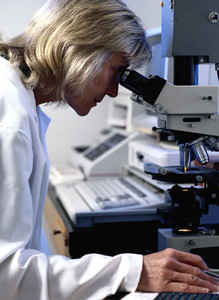Malaysia-based manufacturer Duopharma Biotech aims to establish Malaysia’s first commercial biosimilar production facility. The company is also working to achieve halal certification for its erythropoietin biosimilar, Erysaa.
Duopharma to establish Malaysia’s first commercial biosimilar facility
Biosimilars/General
|
Posted 11/09/2020
 0
Post your comment
0
Post your comment

Medicine manufacturer Duopharma Biotech aims to start producing biosimilars in its home country Malaysia. In July 2020, Duopharma signed an agreement with government investment body VentureTech and Korean firm PanGen to establish the country’s first commercial biosimilar production facility. VentureTech will invest US$3.6 million in the project, which is expected to complete in 2024.
Of the deal, Duopharma Managing Director Leonard Ariff bin Abdul Shatar told the website Salaam Gateway: ‘The new plant means venturing into new therapeutic areas and providing halal options for the Muslim market and for everyone else’.
One of Duopharma’s major products is biosimilar erythropoietin (sold as Erysaa), which is co-developed with PanGen. Erythropoietin stimulates the production of red blood cells and is used to treat anaemia in conditions such as chronic kidney disease. Erysaa was approved by Malaysia’s National Pharmaceutical Regulatory Agency in February 2019 [1].
Erysaa has already been certified as halal in Korea and is currently being assessed by the Malaysian certification body, JAKIM. However, there has been some delay in Malaysian certification due to differences in the interpretation of the use of Chinese hamster ovary (CHO) cells. CHO cells are often used to produce recombinant proteins, including erythropoietin.
The fact that CHO cells are used in the production of Erysaa means JAKIM have not yet been able to certify the product as halal, as the Malaysian authorities closely follow the Shafiʽi school of Islamic jurisprudence.
‘There are various other considerations over whether the animal itself was used, or only a part of it, such as the epithelial cells; that the animal was produced in a sterile laboratory environment and not in the wild; that it is not consumed as food, and only a part of its cells was used in the process of producing the erythropoietin’, explained Duopharma’s Managing Director.
The company says it needs to overcome this challenge in order to progress in the biosimilars space in Malaysia.
Malaysia’s halal pharmaceutical exports exceeded US$95 million in 2019. The country’s halal pharmaceutical standards have recently been expanded to include biologicals and vaccines, facilitating the acceptance of halal pharmaceuticals produced in Malaysia elsewhere in the world.
Related articles
Celltrion wins biosimilar deals and Duopharma increases focus on biosimilars in SE Asia
Reference
1. GaBI Online - Generics and Biosimilars Initiative. PanGen gains Malaysian approval for epoetin alfa biosimilar [www.gabionline.net]. Mol, Belgium: Pro Pharma Communications International; [cited 2020 Sep 11]. Available from: www.gabionline.net/Biosimilars/News/PanGen-gains-Malaysian-approval-for-epoetin-alfa-biosimilar
Permission granted to reproduce for personal and non-commercial use only. All other reproduction, copy or reprinting of all or part of any ‘Content’ found on this website is strictly prohibited without the prior consent of the publisher. Contact the publisher to obtain permission before redistributing.
Copyright – Unless otherwise stated all contents of this website are © 2020 Pro Pharma Communications International. All Rights Reserved
Research
Reaching ESG goals in pharmaceutical development
What is the future for the US biosimilar interchangeability designation
News
FDA approves Poherdy (first interchangeable pertuzumab) and Armlupeg (pegfilgrastim) biosimilars
EMA recommends approval for insulin glargine biosimilar Ondibta and denosumab biosimilar Osqay
Most viewed articles
The best selling biotechnology drugs of 2008: the next biosimilars targets
Global biosimilars guideline development – EGA’s perspective
Related content
Samsung Bioepis wins Pyzchiva case; Regeneron patent rulings threaten foreign biosimilars
Chinese biosimilars go global: growth, partnerships, and challenges
Stelara biosimilars enter US market with 85% discount in 2025
IFPMA publishes position on pharmacy-mediated substitution for biosimilars
Samsung Bioepis wins Pyzchiva case; Regeneron patent rulings threaten foreign biosimilars

Biosimilars/General Posted 30/07/2025
Chinese biosimilars go global: growth, partnerships, and challenges

Biosimilars/General Posted 30/04/2025
IFPMA publishes position on pharmacy-mediated substitution for biosimilars

Biosimilars/General Posted 21/03/2025
The best selling biotechnology drugs of 2008: the next biosimilars targets







Post your comment